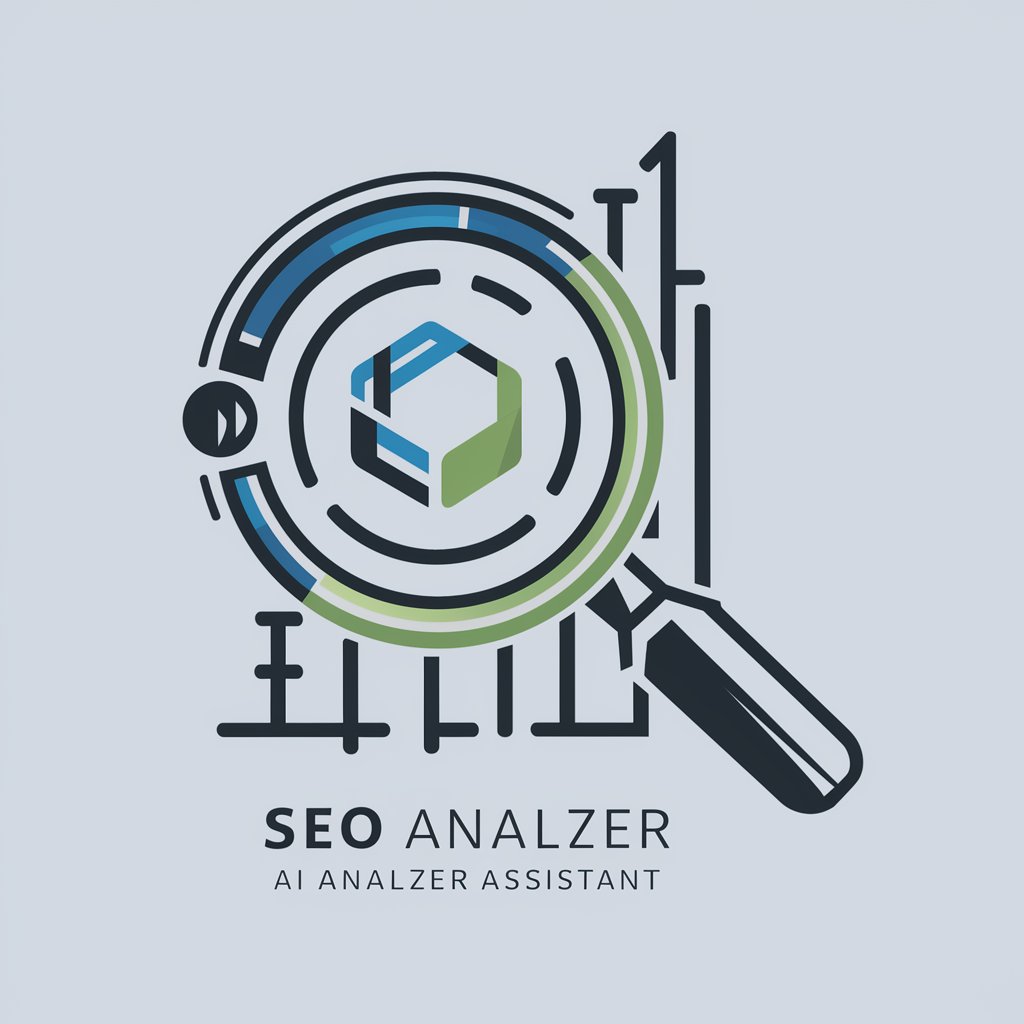
SEO Analyzer - SEO Performance Analysis

Welcome! Let's optimize your website's SEO.
Elevate your SEO game with AI-driven insights.
Analyze the SEO performance of a website by examining...
Provide detailed recommendations for improving the SEO of...
Identify key SEO issues on the webpage, focusing on...
Evaluate the current SEO strategy and suggest enhancements for...
Get Embed Code
SEO Analyzer Introduction
SEO Analyzer is a specialized tool designed to assist in optimizing websites for search engines. Its primary purpose is to analyze web pages through URL inputs, evaluate their SEO performance, and provide actionable recommendations for improvement. The tool examines various aspects of a webpage, including but not limited to, metadata (title tags, meta descriptions), HTML structure, content quality, keyword usage, and accessibility. By identifying areas where a webpage might be lacking from an SEO perspective, SEO Analyzer offers specific, actionable advice along with HTML code examples to implement these suggestions, thereby enhancing the webpage's visibility and ranking on search engines. Powered by ChatGPT-4o。

Main Functions of SEO Analyzer
SEO Performance Evaluation
Example
Analyzing a webpage's title and meta description for length, relevance, and keyword optimization. For instance, if a webpage's title is too long or too short, SEO Analyzer will suggest an optimal length and format.
Scenario
When a new blog post is published, SEO Analyzer can evaluate its title and meta description to ensure they are optimized for search engine visibility.
Content Quality Assessment
Example
Evaluating the use of headings (H1, H2, etc.) and keyword distribution within the content to ensure that the webpage is structured in a way that search engines can easily understand.
Scenario
For a product page, SEO Analyzer can assess the use of headers and keywords to ensure the page is effectively communicating its content to search engines.
Accessibility and Technical SEO Audit
Example
Checking for mobile responsiveness, loading speed, and the presence of alt attributes for images, providing specific HTML fixes to improve these areas.
Scenario
Before launching a website redesign, SEO Analyzer can audit the site for mobile responsiveness and loading times to ensure the new design meets SEO best practices.
Ideal Users of SEO Analyzer Services
Digital Marketers
Professionals involved in digital marketing would benefit from SEO Analyzer by using it to optimize website content and structure for better search engine ranking, thus increasing online visibility and traffic.
Website Owners and Bloggers
Individuals and organizations that own and operate websites or blogs can use SEO Analyzer to improve their site's SEO, making their content more discoverable to their target audience.
SEO Specialists
SEO experts can leverage SEO Analyzer as a tool to quickly assess clients' websites, identify optimization opportunities, and implement best practices to enhance search engine performance.

How to Use SEO Analyzer
1
Visit yeschat.ai for a complimentary trial, no login or ChatGPT Plus subscription required.
2
Enter the URL of the webpage you wish to analyze into the SEO Analyzer tool.
3
Review the comprehensive report generated by the tool, which includes SEO scores, meta data analysis, and recommendations for improvement.
4
Implement the suggested optimizations to your webpage, such as updating meta tags, improving content quality, and enhancing site accessibility.
5
Re-analyze your webpage after making changes to monitor improvements and further refine your SEO strategy.
Try other advanced and practical GPTs
Five Forces Industry Analysis GPT
Strategize with AI-powered Industry Analysis

International Development and Humanitarian Expert
Empowering global development with AI

Markdown Output
Simplifying Markdown with AI

Committer
AI-powered GitHub integration tool

GUSTAV
Reviving Klimt's Legacy with AI

Verbum
Elevate Your Writing with AI-Powered Verb Suggestions

Formal
Master Formal Settings with AI-Powered Etiquette Advice

Advanced content writing template | Topical Map
Empowering Expert Content Creation with AI

NFT Creator GPT
Craft Unique NFTs with AI

Prompt Wizard
Crafting Precision with AI Power

NLP - Your Problem Solver
Empowering Growth with AI-driven NLP

PIP Advisor
Empowering PIP Claimants with AI

SEO Analyzer Q&A
What is SEO Analyzer?
SEO Analyzer is a tool designed to evaluate and enhance the search engine optimization (SEO) of webpages by providing detailed analysis and actionable recommendations.
Can SEO Analyzer help with keyword optimization?
Yes, it offers insights on keyword usage within your webpage's content and meta tags, suggesting optimizations for better ranking.
Does SEO Analyzer check for mobile compatibility?
Absolutely, it evaluates your webpage's mobile-friendliness, a crucial factor in SEO performance and user experience.
How often should I use SEO Analyzer on my website?
Regular use, such as monthly or after significant content updates, is recommended to keep up with SEO best practices and algorithm changes.
Can SEO Analyzer improve website loading speed?
While it doesn't directly speed up your website, it provides recommendations that can lead to improved loading times, such as optimizing images and minimizing CSS/JS.





